Allende
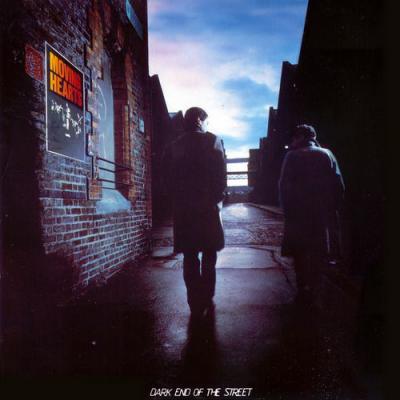
The nighthawk flies and the owl cries as we're driving down the road.
(continua)
(continua)
inviata da DonQuijote82 17/1/2011 - 17:09
Join The British Army

[1958]
Album “Barrack Room Ballads”, con Peggy Seeger
Autore: anonimo di ambiente militare.
Con la melodia della popolare scozzese “The Lass O’ Killiecrankie” (precisazione di Cattia Salto), canzone di battaglia risalente alle guerre giacobite della fine del 17mo secolo [La battaglia di Killiecrankie fu combattuta nel 1689 fra i clan delle Highlands scozzesi, che sostenevano il re cattolico Giacomo II, e le truppo governative schierate con gli Orange protestanti], ecco uscir fuori una canzone contro il potere e contro l’esercito: “Il principe del Galles mi disse: ‘Vieni ed unisciti all’esercito inglese’… ‘sti inglesi sembrano delle scimmie dello zoo… Se avessi la tua faccia da scimmia, caro principe, mi piacerebbe essere un tuo soldato!”.
Non per nulla questo brano, con alcune varianti e strofe aggiuntive, fa parte del repertorio dell’irredentismo irlandese…
Sul fatto poi che il Prince of Wales abbia la faccia da scimmia, non ci possono essere certamente dubbi…
Album “Barrack Room Ballads”, con Peggy Seeger
Autore: anonimo di ambiente militare.
Con la melodia della popolare scozzese “The Lass O’ Killiecrankie” (precisazione di Cattia Salto), canzone di battaglia risalente alle guerre giacobite della fine del 17mo secolo [La battaglia di Killiecrankie fu combattuta nel 1689 fra i clan delle Highlands scozzesi, che sostenevano il re cattolico Giacomo II, e le truppo governative schierate con gli Orange protestanti], ecco uscir fuori una canzone contro il potere e contro l’esercito: “Il principe del Galles mi disse: ‘Vieni ed unisciti all’esercito inglese’… ‘sti inglesi sembrano delle scimmie dello zoo… Se avessi la tua faccia da scimmia, caro principe, mi piacerebbe essere un tuo soldato!”.
Non per nulla questo brano, con alcune varianti e strofe aggiuntive, fa parte del repertorio dell’irredentismo irlandese…
Sul fatto poi che il Prince of Wales abbia la faccia da scimmia, non ci possono essere certamente dubbi…
When I was young I used to be as fine a man as ever you'd see;
(continua)
(continua)
inviata da The Lone Ranger 6/5/2010 - 13:56
Derek Bentley
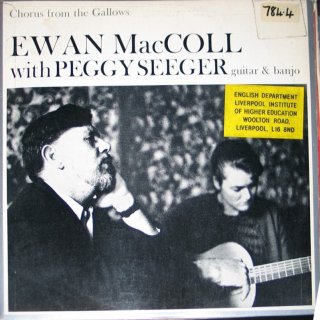
[1960]
Album “Chorus From the Gallows”, con Peggy Seeger.
Testo trovato su Mudcat Café
Derek Bentley aveva 20 anni quando il 28 gennaio 1953 fu impiccato nella prigione di Wandsworth a Londra. Derek, che da piccolino aveva contratto l’epilessia in seguito ad una brutta caduta, vide aggravarsi le proprie condizioni di salute quando, durante la seconda guerra, una bomba nazista distrusse la sua casa lasciandolo gravemente ferito. A causa dei danni ricevuti, lo sviluppo mentale di Derek era pari a quello di un bambino di 11 anni. Nel 1952, insieme ad un amico, tentò una maldestra rapina. Scoperti e raggiunti dalla polizia, il complice - tal Christopher Craig di 16 anni – sparò uccidendo un poliziotto. Benchè non fosse nemmeno armato, Derek fu condannato a morte al posto di Christopher, cui non poteva essere inflitta la pena capitale perché minorenne.
Nel 1998, 45 anni dopo, il povero Derek Bentley, maltrattato dalla vita e assassinato dalla “giustizia”, è stato ufficialmente riabilitato.
Album “Chorus From the Gallows”, con Peggy Seeger.
Testo trovato su Mudcat Café
Derek Bentley aveva 20 anni quando il 28 gennaio 1953 fu impiccato nella prigione di Wandsworth a Londra. Derek, che da piccolino aveva contratto l’epilessia in seguito ad una brutta caduta, vide aggravarsi le proprie condizioni di salute quando, durante la seconda guerra, una bomba nazista distrusse la sua casa lasciandolo gravemente ferito. A causa dei danni ricevuti, lo sviluppo mentale di Derek era pari a quello di un bambino di 11 anni. Nel 1952, insieme ad un amico, tentò una maldestra rapina. Scoperti e raggiunti dalla polizia, il complice - tal Christopher Craig di 16 anni – sparò uccidendo un poliziotto. Benchè non fosse nemmeno armato, Derek fu condannato a morte al posto di Christopher, cui non poteva essere inflitta la pena capitale perché minorenne.
Nel 1998, 45 anni dopo, il povero Derek Bentley, maltrattato dalla vita e assassinato dalla “giustizia”, è stato ufficialmente riabilitato.
It's of a great adventure, to you that I will tell,
(continua)
(continua)
inviata da The Lone Ranger 6/5/2010 - 11:31
Percorsi:
Pena di morte: omicidio del potere
The Lag's Song
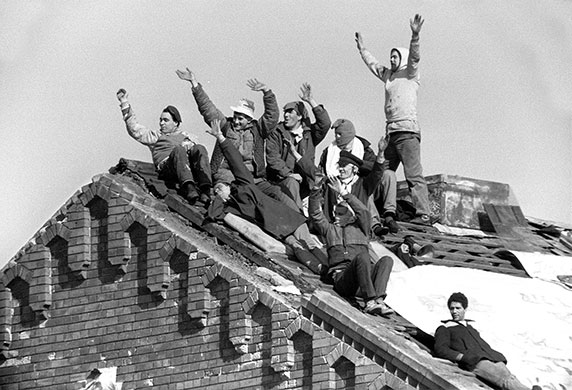
[1965]
Album “Cold Snap”, with Peggy Seeger (Folkways Records, 1978)
Testo trovato su MySongBook
Ewan MacColl scrisse questo brano nel 1965 per "In Prison", un documentario della BBC sulla prigione di Strangeways a Manchester.
La prigione di Strangeways è balzata all’onore delle cronache nel 1990, quando fu teatro della più lunga rivolta di detenuti nella storia del Regno Unito, dovuta alle terribili condizioni di vita nel “Her Majesty's prison system”. Il 1 aprile i prigionieri presero il controllo del carcere e salirono sui tetti, dove resistettero per 25 giorni. Il bilancio fu di un morto, un detenuto, e di svariate decine di feriti, soprattutto fra le guardie. La prigione fu semidistrutta e potè riaprire soltanto nel 1994.
Album “Cold Snap”, with Peggy Seeger (Folkways Records, 1978)
Testo trovato su MySongBook
Ewan MacColl scrisse questo brano nel 1965 per "In Prison", un documentario della BBC sulla prigione di Strangeways a Manchester.
La prigione di Strangeways è balzata all’onore delle cronache nel 1990, quando fu teatro della più lunga rivolta di detenuti nella storia del Regno Unito, dovuta alle terribili condizioni di vita nel “Her Majesty's prison system”. Il 1 aprile i prigionieri presero il controllo del carcere e salirono sui tetti, dove resistettero per 25 giorni. Il bilancio fu di un morto, un detenuto, e di svariate decine di feriti, soprattutto fra le guardie. La prigione fu semidistrutta e potè riaprire soltanto nel 1994.
When I was a young lad sometimes I'd wonder
(continua)
(continua)
inviata da Alessandro 27/4/2010 - 10:19
Percorsi:
Dalle galere del mondo
The Klan

[1951]
Album "Something Else Again", 1968
Scritta da David e Alan Arkin con lo pseudonimo di David e Alan Gray.
La canzone sii trova anche eseguita dal vivo da Ewan MacColl, Peggy Seeger nell'album "Songs of Struggle" del 1976 e anche interpretata da Gil Scott-Heron nel suo album "Real Eyes" del 1980
L'autore di questa canzone, David Arkin, era insegnante, pittore e scrittore. Nel secondo dopoguerra trovò lavoro negli Studios di Hollywood ma lo perse quasi subito quando, accusato di essere comunista – erano gli anni in cui furibonda impazzava la "caccia alle streghe" - rifiutò di presentarsi a rispondere davanti alla commissione sulle attività anti-americane. La famiglia Arkin fu segnata da questa vicenda e non è certo un caso se questa canzone David e il figlio Alan la firmarono con lo pseudonimo di Gray. E non è neppure un caso se, all'inizio della sua carriera come attore cinematogafico,... (continua)
Album "Something Else Again", 1968
Scritta da David e Alan Arkin con lo pseudonimo di David e Alan Gray.
La canzone sii trova anche eseguita dal vivo da Ewan MacColl, Peggy Seeger nell'album "Songs of Struggle" del 1976 e anche interpretata da Gil Scott-Heron nel suo album "Real Eyes" del 1980
L'autore di questa canzone, David Arkin, era insegnante, pittore e scrittore. Nel secondo dopoguerra trovò lavoro negli Studios di Hollywood ma lo perse quasi subito quando, accusato di essere comunista – erano gli anni in cui furibonda impazzava la "caccia alle streghe" - rifiutò di presentarsi a rispondere davanti alla commissione sulle attività anti-americane. La famiglia Arkin fu segnata da questa vicenda e non è certo un caso se questa canzone David e il figlio Alan la firmarono con lo pseudonimo di Gray. E non è neppure un caso se, all'inizio della sua carriera come attore cinematogafico,... (continua)
Countryside was cold and still
(continua)
(continua)
inviata da Alessandro 17/4/2010 - 15:46
Go, Move, Shift

[1964]
Canzone contenuta in “The Travelling People”, l’ultima delle “Radio Ballads”, gli audio-documentari che Ewan MacColl, Peggy Seeger, e Charles Parker realizzarono tra il 1958 e il 1964 per la BBC, tra le prime trasmissioni radiofoniche a raccogliere direttamente sul campo le voci della gente comune: macchinisti, operai, pescatori, minatori ma anche adolescenti delle periferie, disabili affetti da poliomelite, pugili e – come in questo brano – “gypsies” che nel Regno Unito e in Irlanda sono non solo e non tanto i Roma ma piuttosto le diverse e distinte comunità di English, Scottish e Irish Travellers, tra cui i Romanichals (arrivati dall’Ungheria nel 16° secolo), i Welsh Kale (nel Galles dal 1700) e i Pavees irlandesi, presenti anche negli USA, discendenti di coloro che nel 19° secolo furono cacciati dalle loro terre dalle armate di Cromwell e dalla “Potato Famine”.
Inutile dire... (continua)
Canzone contenuta in “The Travelling People”, l’ultima delle “Radio Ballads”, gli audio-documentari che Ewan MacColl, Peggy Seeger, e Charles Parker realizzarono tra il 1958 e il 1964 per la BBC, tra le prime trasmissioni radiofoniche a raccogliere direttamente sul campo le voci della gente comune: macchinisti, operai, pescatori, minatori ma anche adolescenti delle periferie, disabili affetti da poliomelite, pugili e – come in questo brano – “gypsies” che nel Regno Unito e in Irlanda sono non solo e non tanto i Roma ma piuttosto le diverse e distinte comunità di English, Scottish e Irish Travellers, tra cui i Romanichals (arrivati dall’Ungheria nel 16° secolo), i Welsh Kale (nel Galles dal 1700) e i Pavees irlandesi, presenti anche negli USA, discendenti di coloro che nel 19° secolo furono cacciati dalle loro terre dalle armate di Cromwell e dalla “Potato Famine”.
Inutile dire... (continua)
Born in the middle of the afternoon
(continua)
(continua)
inviata da Alessandro 11/2/2010 - 10:07
Brother, Won't You Join In The Line?
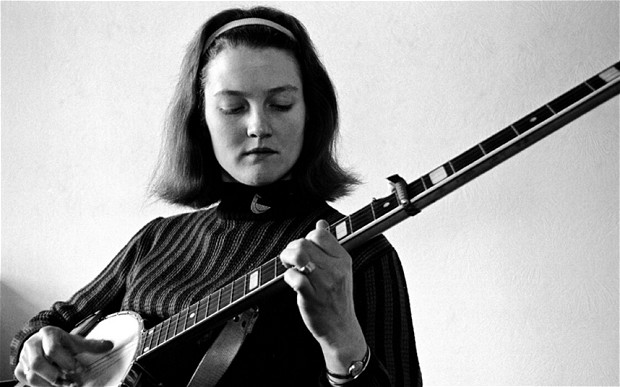
[1960]
In Ewan MacColl and Peggy Seeger, “New Briton Gazette, Vol. 1”, Folkways Records.
Words by Ewan MacColl
Melody: Brother, Can You Spare A Dime?
In Ewan MacColl and Peggy Seeger, “New Briton Gazette, Vol. 1”, Folkways Records.
Words by Ewan MacColl
Melody: Brother, Can You Spare A Dime?
Brother, won't you join in the line?
(continua)
(continua)
inviata da Alessandro 28/1/2010 - 10:05
There’s Better Things For You
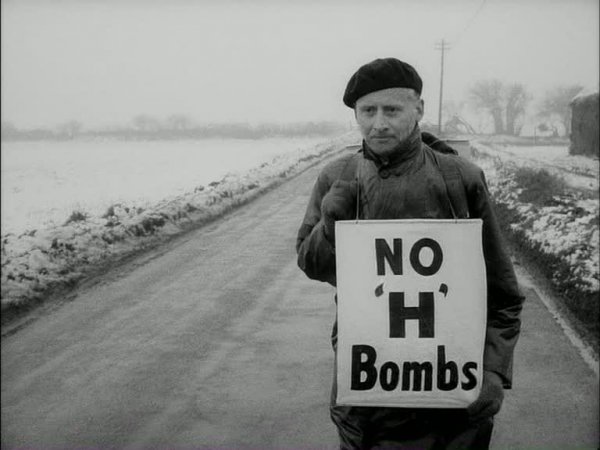
[1960]
In Ewan MacColl and Peggy Seeger, “New Briton Gazette, Vol. 1”, Folkways Records.
Words by Peggy Seeger
Melody: the gospel song “There’s Better Things”
“Written in 1958 as a marching song for the first Aldermaston march against di H bomb”
Aldermaston è un villaggio rurale nel Berkshire inglese sede dell’Atomic Weapons Establishment (AWE), l’agenzia governativa – ma gestita dai privati Jacobs Engineering Group, Lockheed Martin UK e Serco – che custodisce l’arsenale nucleare britannico. Tra la fine degli anni 50 e l’inizio dei 60 la cittadina fu teatro di grandi manifestazioni pacifiste.
Quella del 1958, alla quale si riferisce la canzone della Seeger, fu pure filmata da Lindsay Anderson, grande regista iconoclasta esponente del Free Cinema britannico (quello di “If…”, “This Sporting Life” e “Look Back in Anger”), che realizzò poi un documentario intitolato “March to Aldermaston”.... (continua)
In Ewan MacColl and Peggy Seeger, “New Briton Gazette, Vol. 1”, Folkways Records.
Words by Peggy Seeger
Melody: the gospel song “There’s Better Things”
“Written in 1958 as a marching song for the first Aldermaston march against di H bomb”
Aldermaston è un villaggio rurale nel Berkshire inglese sede dell’Atomic Weapons Establishment (AWE), l’agenzia governativa – ma gestita dai privati Jacobs Engineering Group, Lockheed Martin UK e Serco – che custodisce l’arsenale nucleare britannico. Tra la fine degli anni 50 e l’inizio dei 60 la cittadina fu teatro di grandi manifestazioni pacifiste.
Quella del 1958, alla quale si riferisce la canzone della Seeger, fu pure filmata da Lindsay Anderson, grande regista iconoclasta esponente del Free Cinema britannico (quello di “If…”, “This Sporting Life” e “Look Back in Anger”), che realizzò poi un documentario intitolato “March to Aldermaston”.... (continua)
Kind friends, I want to warn you
(continua)
(continua)
inviata da Alessandro 26/1/2010 - 11:10
The Crooked Cross
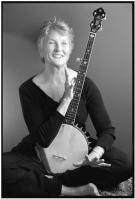
[1960]
In Ewan MacColl and Peggy Seeger, “New Briton Gazette, Vol. 1”, Folkways Records.
Words and music by Peggy Seeger
Una canzone sulla guerra nazista e sull’Olocausto degli ebrei in Europa che si chiude con due significative strofe di condanna per le gerarchie politico-militari alleate che, tolta qualche condanna esemplare al processo di Norimberga, non perseguirono affatto i responsabili di tanta carneficina e di tanto orrore ed, anzi, si avvalsero ampiamente dei servigi dei nazisti durante il periodo della guerra fredda.
In Ewan MacColl and Peggy Seeger, “New Briton Gazette, Vol. 1”, Folkways Records.
Words and music by Peggy Seeger
Una canzone sulla guerra nazista e sull’Olocausto degli ebrei in Europa che si chiude con due significative strofe di condanna per le gerarchie politico-militari alleate che, tolta qualche condanna esemplare al processo di Norimberga, non perseguirono affatto i responsabili di tanta carneficina e di tanto orrore ed, anzi, si avvalsero ampiamente dei servigi dei nazisti durante il periodo della guerra fredda.
The sudden crop of swastikas on synagogues and cemetaries in Germany and other parts of Europe produced this song.
(continua)
(continua)
inviata da Alessandro 26/1/2010 - 09:54
Percorsi:
Campi di sterminio
It’s All Happening Now
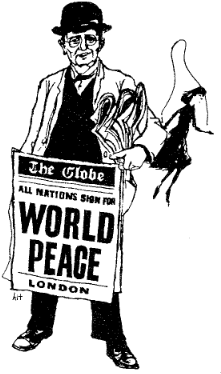
The old year goes and the new comes in, but winter stays
(continua)
(continua)
inviata da Alessandro 22/7/2009 - 15:09
The Aberfan Coaltip Tragedy
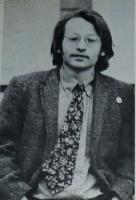
[1966]
words & music by Tom (aka Thom) Parrott
Come Grey October di Peggy Seeger, un'altra canzone sul disastro di Aberfan, Galles, del 1966, quando una massa enorme di detriti provenienti da una vicina miniera si staccò investendo il paese e la locale scuola, uccidendo un mucchio di bambini... Nella canzone della Seeger, questo capitava mentre i bombardieri statunitensi radevano al suolo un altro paese e un'altra scuola nel lontano Vietnam...
words & music by Tom (aka Thom) Parrott
Come Grey October di Peggy Seeger, un'altra canzone sul disastro di Aberfan, Galles, del 1966, quando una massa enorme di detriti provenienti da una vicina miniera si staccò investendo il paese e la locale scuola, uccidendo un mucchio di bambini... Nella canzone della Seeger, questo capitava mentre i bombardieri statunitensi radevano al suolo un altro paese e un'altra scuola nel lontano Vietnam...
The mining men of Wales are hardy, strong and bold,
(continua)
(continua)
inviata da Alessandro 27/5/2009 - 13:14
Grey October

[1966]
Lyrics by Charles Parker & Peggy Seeger
Music by Peggy Seeger, Ewan McColl & Critics Group
Il 21 ottobre 1966 ad Aberfan, un sobborgo minerario della città di Merthyr Tydfil, contea di Glamorgan, Sud del Galles, un'enorme massa di detriti derivanti dalla lavorazione del carbone a cielo aperto si staccò investendo il villaggio e la locale Pantglas Junior School. Dei 144 morti, 116 erano bambini.
Lo stesso giorno a Thuy Dan, provincia di Thi Binh, Nord Vietnam, una scuola identica a quella di Aberfan fu spazzata via dalle bombe americane.
Trovata su Mudcat.
Lyrics by Charles Parker & Peggy Seeger
Music by Peggy Seeger, Ewan McColl & Critics Group
Il 21 ottobre 1966 ad Aberfan, un sobborgo minerario della città di Merthyr Tydfil, contea di Glamorgan, Sud del Galles, un'enorme massa di detriti derivanti dalla lavorazione del carbone a cielo aperto si staccò investendo il villaggio e la locale Pantglas Junior School. Dei 144 morti, 116 erano bambini.
Lo stesso giorno a Thuy Dan, provincia di Thi Binh, Nord Vietnam, una scuola identica a quella di Aberfan fu spazzata via dalle bombe americane.
Trovata su Mudcat.
Grey October in Glamorgan
(continua)
(continua)
inviata da Alessandro 18/11/2008 - 00:19
Paul Reutershan (The Agent Orange Song)
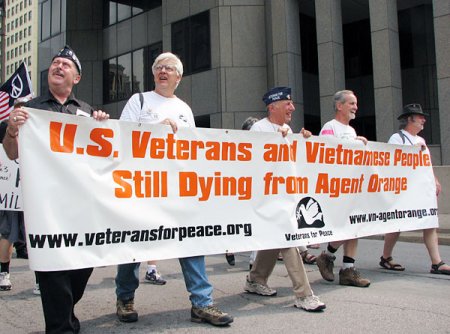
[1982]
L'autrice - sicuramente del testo, ignoro se anche della musica - scrisse questa canzone dopo aver partecipato ad un'inchiesta per conto dell'Associazione Veterani del Vietnam sugli effetti a lunga distanza dell'esposizione alla diossina, impiegata massicciamente dagli statunitensi durante la guerra come defoliante, noto con il nome di "Agent Orange", prodotto dalla Dow Chemical.
Il brano è intitolato ad un elicotterista statunitense, Paul Reutershan, che morì di cancro nel 1978 a seguito dell'esposizione all'Agent Orange. Prima di morire, rilasciò un'intervista alla rivista Today in cui dichiarò: “I died in Vietnam, but I didn’t even know it.”
Il brano è stato sicuramente inciso da Peggy Seeger e anche da Jim Walktendonk in "Red, white and blind", risalente ai primi anni '80.
L'autrice - sicuramente del testo, ignoro se anche della musica - scrisse questa canzone dopo aver partecipato ad un'inchiesta per conto dell'Associazione Veterani del Vietnam sugli effetti a lunga distanza dell'esposizione alla diossina, impiegata massicciamente dagli statunitensi durante la guerra come defoliante, noto con il nome di "Agent Orange", prodotto dalla Dow Chemical.
Il brano è intitolato ad un elicotterista statunitense, Paul Reutershan, che morì di cancro nel 1978 a seguito dell'esposizione all'Agent Orange. Prima di morire, rilasciò un'intervista alla rivista Today in cui dichiarò: “I died in Vietnam, but I didn’t even know it.”
Il brano è stato sicuramente inciso da Peggy Seeger e anche da Jim Walktendonk in "Red, white and blind", risalente ai primi anni '80.
I was seventeen when I quit school, the year that I enlisted
(continua)
(continua)
inviata da Alessandro 17/11/2008 - 13:17
Percorsi:
Guerra in Vietnam: vista dagli USA
Four Minutes to Midnight
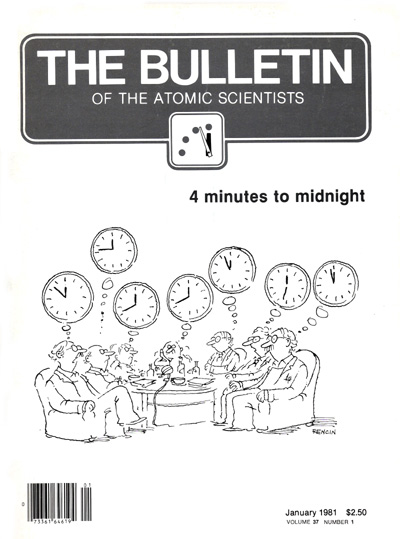
The Greenham Common Women's Peace Camp Songbook
Greenham Common Women's Peace Camp was a peace camp established to protest at nuclear weapon being sited at RAF Greenham Common in Berkshire, England. The camp began in September 1981 after a Welsh group called "Women for Life on Earth" arrived at Greenham to protest against the decision of the Government to allow cruise missiles to be based there.
On 1 April 1983, tens of thousands of protestors formed a 14 mile human chain from Greenham to the Aldermaston nuclear power station and the ordnance factory at Burghfield.
On 4 April 1984, the women were evicted from the Common by Newbury District Council. However by nightfall the women all returned to reform the camp.
The last missiles left the camp in 1991 but the camp remained in place until 2000 after protestors won the right to house a memorial on the site.
en.wikipedia
Il Campo della... (continua)
Greenham Common Women's Peace Camp was a peace camp established to protest at nuclear weapon being sited at RAF Greenham Common in Berkshire, England. The camp began in September 1981 after a Welsh group called "Women for Life on Earth" arrived at Greenham to protest against the decision of the Government to allow cruise missiles to be based there.
On 1 April 1983, tens of thousands of protestors formed a 14 mile human chain from Greenham to the Aldermaston nuclear power station and the ordnance factory at Burghfield.
On 4 April 1984, the women were evicted from the Common by Newbury District Council. However by nightfall the women all returned to reform the camp.
The last missiles left the camp in 1991 but the camp remained in place until 2000 after protestors won the right to house a memorial on the site.
en.wikipedia
Il Campo della... (continua)
Four minutes to midnight
(continua)
(continua)
inviata da CCG/AWS Staff 15/1/2008 - 20:17
Reclaim The Night
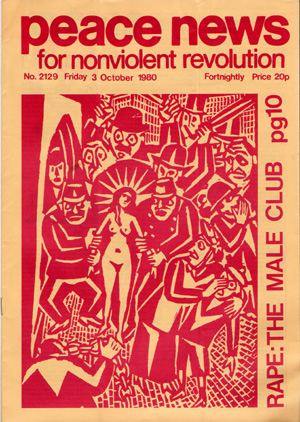
The Greenham Common Women's Peace Camp Songbook
Greenham Common Women's Peace Camp was a peace camp established to protest at nuclear weapon being sited at RAF Greenham Common in Berkshire, England. The camp began in September 1981 after a Welsh group called "Women for Life on Earth" arrived at Greenham to protest against the decision of the Government to allow cruise missiles to be based there.
On 1 April 1983, tens of thousands of protestors formed a 14 mile human chain from Greenham to the Aldermaston nuclear power station and the ordnance factory at Burghfield.
On 4 April 1984, the women were evicted from the Common by Newbury District Council. However by nightfall the women all returned to reform the camp.
The last missiles left the camp in 1991 but the camp remained in place until 2000 after protestors won the right to house a memorial on the site.
en.wikipedia
Il Campo della... (continua)
Greenham Common Women's Peace Camp was a peace camp established to protest at nuclear weapon being sited at RAF Greenham Common in Berkshire, England. The camp began in September 1981 after a Welsh group called "Women for Life on Earth" arrived at Greenham to protest against the decision of the Government to allow cruise missiles to be based there.
On 1 April 1983, tens of thousands of protestors formed a 14 mile human chain from Greenham to the Aldermaston nuclear power station and the ordnance factory at Burghfield.
On 4 April 1984, the women were evicted from the Common by Newbury District Council. However by nightfall the women all returned to reform the camp.
The last missiles left the camp in 1991 but the camp remained in place until 2000 after protestors won the right to house a memorial on the site.
en.wikipedia
Il Campo della... (continua)
Though Eve was made from Adam's rib,
(continua)
(continua)
inviata da CCG/AWS Staff 10/1/2008 - 17:21
Carry Greenham Home
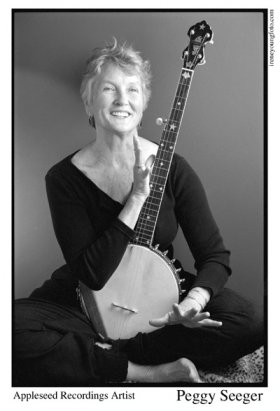
The Greenham Common Women's Peace Camp Songbook
Greenham Common Women's Peace Camp was a peace camp established to protest at nuclear weapon being sited at RAF Greenham Common in Berkshire, England. The camp began in September 1981 after a Welsh group called "Women for Life on Earth" arrived at Greenham to protest against the decision of the Government to allow cruise missiles to be based there.
On 1 April 1983, tens of thousands of protestors formed a 14 mile human chain from Greenham to the Aldermaston nuclear power station and the ordnance factory at Burghfield.
On 4 April 1984, the women were evicted from the Common by Newbury District Council. However by nightfall the women all returned to reform the camp.
The last missiles left the camp in 1991 but the camp remained in place until 2000 after protestors won the right to house a memorial on the site.
en.wikipedia
Il Campo della... (continua)
Greenham Common Women's Peace Camp was a peace camp established to protest at nuclear weapon being sited at RAF Greenham Common in Berkshire, England. The camp began in September 1981 after a Welsh group called "Women for Life on Earth" arrived at Greenham to protest against the decision of the Government to allow cruise missiles to be based there.
On 1 April 1983, tens of thousands of protestors formed a 14 mile human chain from Greenham to the Aldermaston nuclear power station and the ordnance factory at Burghfield.
On 4 April 1984, the women were evicted from the Common by Newbury District Council. However by nightfall the women all returned to reform the camp.
The last missiles left the camp in 1991 but the camp remained in place until 2000 after protestors won the right to house a memorial on the site.
en.wikipedia
Il Campo della... (continua)
Hand in hand, the line extends
(continua)
(continua)
inviata da CCG/AWS Staff 26/12/2007 - 15:03
原爆許すまじ [No More Atomic Bombs]
![原爆許すまじ [No More Atomic Bombs]](img/thumb/c934_130x140.jpeg?1328309174)
The English version by Ewan McColl.
Si tratta della versione inglese del grande folksinger Ewan McColl (marito di Peggy Seeger e quindi cognato di Pete Seeger, che ha pure interpretato la canzone). Inserita prima a suo nome, fino a quando non è stato reperito il testo originale giapponese della canzone-
The following is the English version by the great folksinger Ewan McColl (the husband to Peggy Seeger, who has performed the song, too and, thus, Pete Seeger's brother-in-law). Formerly included to his name until the original Japanese lyrics have been found and contributed.
Si tratta della versione inglese del grande folksinger Ewan McColl (marito di Peggy Seeger e quindi cognato di Pete Seeger, che ha pure interpretato la canzone). Inserita prima a suo nome, fino a quando non è stato reperito il testo originale giapponese della canzone-
The following is the English version by the great folksinger Ewan McColl (the husband to Peggy Seeger, who has performed the song, too and, thus, Pete Seeger's brother-in-law). Formerly included to his name until the original Japanese lyrics have been found and contributed.
HIROSHIMA SONG
(continua)
(continua)
inviata da Riccardo Venturi 20/4/2006 - 18:00
Ballad Of The Unknown Soldier
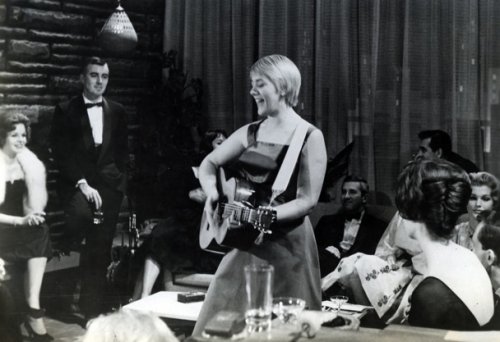
[1969?]
Lyrics and music by Rod Shearman
Testo e musica di Rod Shearman
"The song is called "The Ballad of the Unknown Soldier." I
don't know whether anyone other than Barbara Dane sang it in the U.S.back in those days. Barbara recorded it on Paredon's "What Now People?" Vol. 1. some time in the early seventies. (She first got the song from Peggy Seeger who sent it to her in 1969.) The author, Rod Shearman, is English. Shearman wrote it after seeing a brief item in the Manchester Guardian about an American GI, dressed in sandals and black pajamas, who was found dead behind "enemy" lines. (There had been a number of other stories in the New York Times and other places about GIs who "went over to the other side" in Vietnam. One had to do with a team known as Salt and Pepper -- a Black GI and a white GI, and another solder called Porkchop, who also fought alongside the Vietnamese. Jack Warshaw,... (continua)
Lyrics and music by Rod Shearman
Testo e musica di Rod Shearman
"The song is called "The Ballad of the Unknown Soldier." I
don't know whether anyone other than Barbara Dane sang it in the U.S.back in those days. Barbara recorded it on Paredon's "What Now People?" Vol. 1. some time in the early seventies. (She first got the song from Peggy Seeger who sent it to her in 1969.) The author, Rod Shearman, is English. Shearman wrote it after seeing a brief item in the Manchester Guardian about an American GI, dressed in sandals and black pajamas, who was found dead behind "enemy" lines. (There had been a number of other stories in the New York Times and other places about GIs who "went over to the other side" in Vietnam. One had to do with a team known as Salt and Pepper -- a Black GI and a white GI, and another solder called Porkchop, who also fought alongside the Vietnamese. Jack Warshaw,... (continua)
Come and Listen to a story I will tell
(continua)
(continua)
inviata da Riccardo Venturi 13/11/2005 - 14:50
Percorsi:
Guerra in Vietnam: vista dagli USA
Scarborough Fair/Canticle, provided with The Elfin Knight, Whittingham Fair and Rosemary Lane, and with an Appendix on Riddles Wisely Expounded
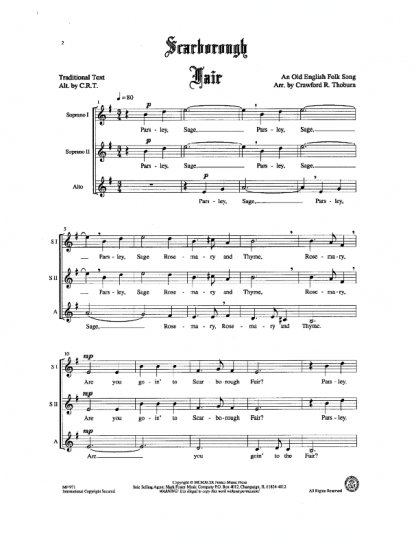
A1. Scarborough Fair :
Tradizionale inglese / English Traditional Folksong (Child #2S)
T. Bruce / J. Stokoe, Northumbrian Minstrelsy, 1882
Rielaborazione di / Reworking of Martin Carthy (1962)
A2. Canticle:
Lyrics by / Testo di Paul Simon (1963)
(Reworking of / Rielaborazione di The Side Of A Hill)
Musica / Music: Art Garfunkel
Album: Parsley, Sage, Rosemary and Thyme
B. The Elfin Knight:
Tradizionale scozzese / Scottish Traditional Folksong (Child #2 etc)
William Motherwell, Minstrelsy, Ancient and Modern, 1827
C. Ulteriori Versioni di “Scarborough Fair” / Further Versions of “Scarborough Fair”
D. Whittingham Fair:
Tradizionale inglese / English Traditional Folksong
Rielaborazione / Reworking: Nancy Kerr, 1993
Album:Eliza Carthy & Nancy Kerr
E. Rosemary Lane:
Tradizionale inglese / English Traditional Folksong
Rielaborazione / Reworking: Liz Jefferies, 1976
in: Barry... (continua)
Tradizionale inglese / English Traditional Folksong (Child #2S)
T. Bruce / J. Stokoe, Northumbrian Minstrelsy, 1882
Rielaborazione di / Reworking of Martin Carthy (1962)
A2. Canticle:
Lyrics by / Testo di Paul Simon (1963)
(Reworking of / Rielaborazione di The Side Of A Hill)
Musica / Music: Art Garfunkel
Album: Parsley, Sage, Rosemary and Thyme
B. The Elfin Knight:
Tradizionale scozzese / Scottish Traditional Folksong (Child #2 etc)
William Motherwell, Minstrelsy, Ancient and Modern, 1827
C. Ulteriori Versioni di “Scarborough Fair” / Further Versions of “Scarborough Fair”
D. Whittingham Fair:
Tradizionale inglese / English Traditional Folksong
Rielaborazione / Reworking: Nancy Kerr, 1993
Album:Eliza Carthy & Nancy Kerr
E. Rosemary Lane:
Tradizionale inglese / English Traditional Folksong
Rielaborazione / Reworking: Liz Jefferies, 1976
in: Barry... (continua)
A1. SCARBOROUGH FAIR
(continua)
inviata da Riccardo Venturi
That Bomb Has Got To Go!

Scritta assieme alla moglie, Peggy Seeger. Da cantarsi sull'aria di "100 Years on the Eastern Shore".
We're marching on Trafalgar Square, Oh yes, oh!
(continua)
(continua)
inviata da Riccardo Venturi
×
![]()

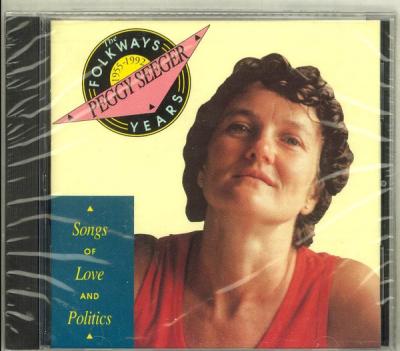
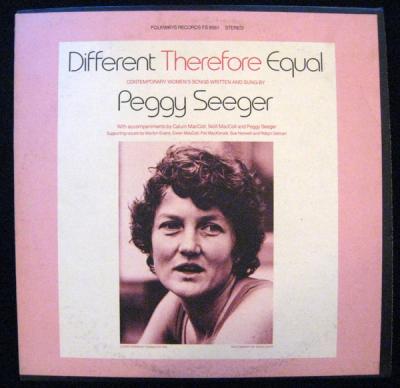
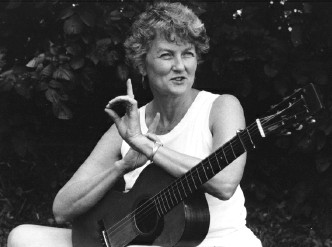
da Dark End Of The Street - 1981
I have 3 versions of where I heard this song.
1. On AFN radio late one night I heard Peggy Seeger sing it out of Franfurt.(unlikely).
2. I heard Don Lange sing it in The Meeting Place Dorset St. Dublin.(even more unlikely).
3. The Dir. of L.E. in R.T.E. sent me a cassette after hearing me sing El Salvador(by Johnny Duhan) in The Felons Club In Andytown.( poss.).
It is a powerful song which never loses its potency. I first recorded it with Moving Hearts in 1983( Dark End of The Street) and again in 2002 ( ive at Vicar St.)
The author still writes,sings and records and,I am glad to say still sends me the occasional song
Christy Moore